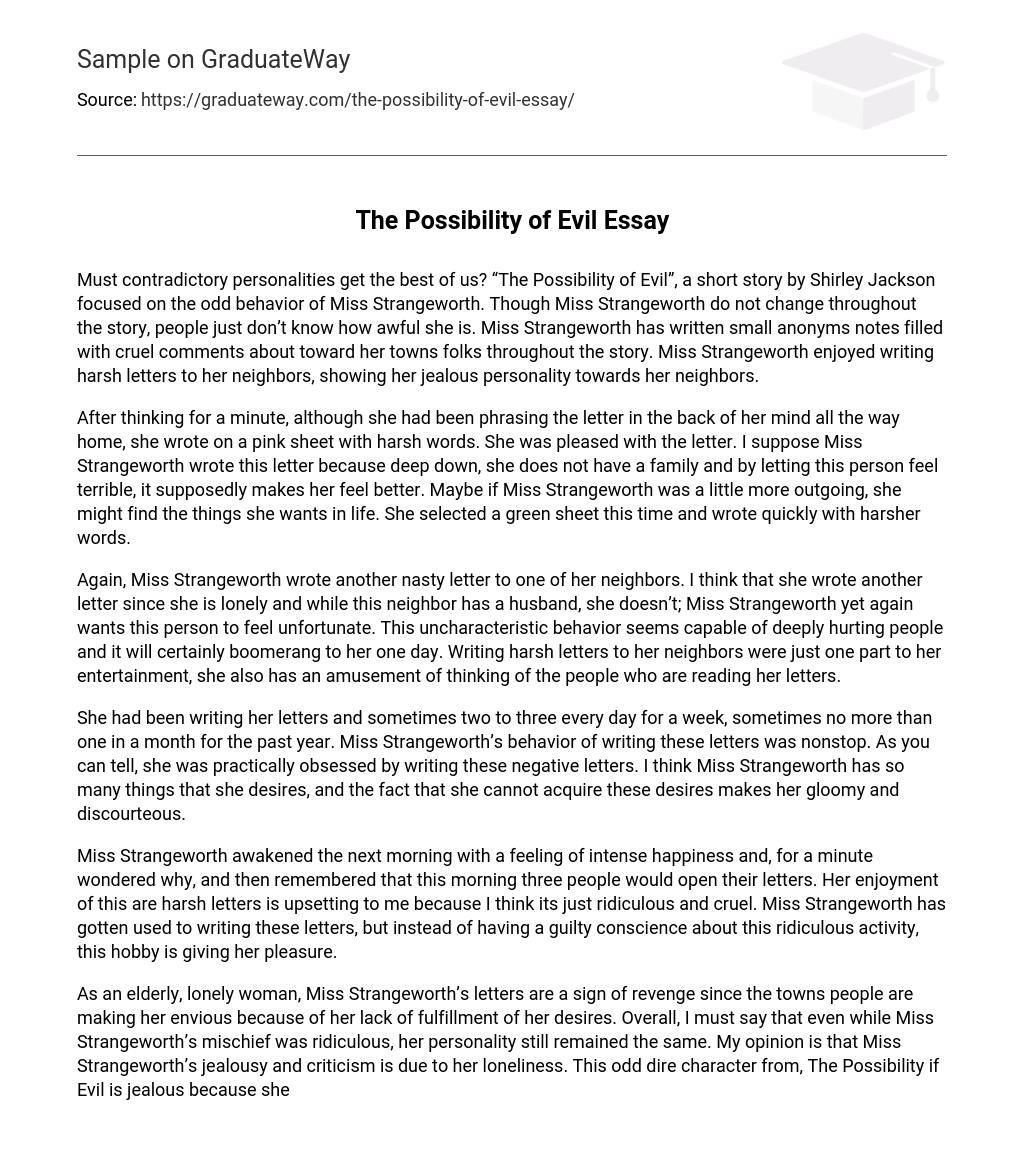Must conflicting personalities dominate our interactions? “The Possibility of Evil,” a short story by Shirley Jackson, centers around the peculiar actions of Miss Strangeworth. Despite her consistent demeanor, people are unaware of her true malevolence. Throughout the story, Miss Strangeworth composes anonymous letters containing cruel remarks about her fellow townspeople. Her enjoyment in crafting spiteful messages reveals her envious nature towards her neighbors.
After considering for a moment, despite having mentally composed the letter during the journey back home, she perched herself on a pink sheet and expressed her thoughts sternly. The letter satisfied her. I assume Miss Strangeworth penned this message as a means to compensate for her lack of family and derive personal satisfaction from tormenting others. Perhaps if she were more sociable, she might discover the desired aspects of life. This time, she opted for a green sheet and swiftly composed a more severe message.
Once again, Miss Strangeworth has composed yet another unkind letter to one of her neighbors. It appears that her motivation for writing another letter stems from her own loneliness, contrasting with the fact that this particular neighbor has a spouse. Miss Strangeworth’s persistent desire seems to be making this individual feel unfortunate. This peculiar behavior has the potential to cause great distress to those on the receiving end, ultimately leading to negative consequences for Miss Strangeworth herself. Sending hostile letters to her neighbors is not the only source of amusement for her; she also derives pleasure from imagining the reactions of those who read her correspondence.
For the past year, Miss Strangeworth has been consistently writing letters. Sometimes she writes two to three every day for a week, while other times she may write just one in a month. It is clear that she has developed an obsession with writing these negative letters. I believe this stems from her numerous unfulfilled desires, which ultimately make her feel gloomy and discourteous.
Upon awakening the following morning, Miss Strangeworth found herself overcome with a profound sense of joy. After a moment of contemplation, she recalled the reason behind this surge of happiness – today, three individuals would be opening their letters. It deeply disturbs me to witness her delight in these venomous correspondences, as I find the entire affair both absurd and unkind. Despite the fact that Miss Strangeworth has become accustomed to composing these letters, rather than feeling remorse for engaging in such a preposterous pastime, it appears to bring her great satisfaction.
Miss Strangeworth, an elderly and lonely woman, seeks revenge through her letters as a result of the townspeople making her envious due to her unfulfilled desires. Although Miss Strangeworth’s mischief may be seen as ridiculous, her personality remains unchanged. In my opinion, her jealousy and criticism stem from her loneliness. This peculiar and sinister character in “The Possibility of Evil” is driven by her lack of obtaining what she desires. Unless she ceases her mischief, Miss Strangeworth’s frustration will continue to cause harm.





